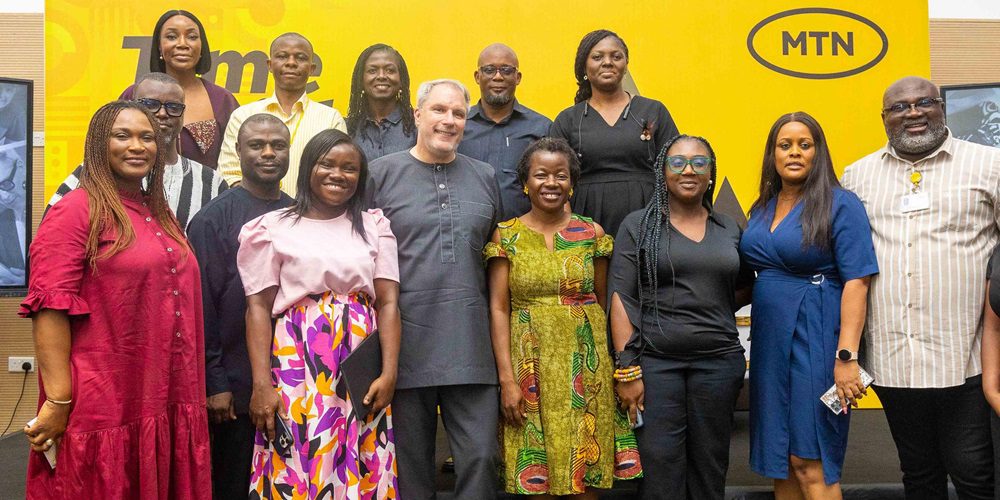The Chief Executive Officer (CEO) of MTN Ghana, Mr. Stephen Blewett, has made a strong case for the local assembly of smartphones in Ghana.
He has urged the government to scrap taxes and duties on components imported for assembling smartphones to promote local production.
Until local assembly plants become operational, Mr. Blewett has proposed removing taxes and duties on imported smartphones to make them more affordable for the general population.
He is confident that a thriving local assembly industry would deliver better-quality smartphones at competitive prices, significantly benefiting Ghanaians.

Digitalization challenges
Speaking at a recent media interaction titled “Time with Stephen”, held to mark his first anniversary in Ghana Mr. Blewett highlighted a major obstacle in Ghana’s digitalization drive—the lack of smartphone accessibility.
He pointed out that over 30% of the population does not own a smartphone, making it difficult for the country to achieve full digital transformation.
According to data from the Ghana Statistical Service, approximately 4.9 million Ghanaians aged 15 years and older do not own a functional smartphone.
This disparity is even more pronounced among females, with nearly three million women lacking smartphones compared to 1.8 million men.
The percentage of the population without smartphones aligns closely with the number of people who remain offline.
Statistics indicate that one in every four Ghanaians (24.6%) does not own a smartphone.
Among males, the percentage stands at 19.2%, while among females, it is significantly higher at 29.6%.
This digital gap, Mr. Blewett emphasized, must be closed for Ghana to maximize the benefits of digitalization.

Ghana’s digitalization drive needs more effort
Mr. Blewett acknowledged that Ghana is ahead of many African countries in digitalization, with a growing number of people becoming familiar with digital platforms. However, he stressed that more needs to be done to deepen the digital transformation beyond digital transactions.
As the world increasingly shifts to digital solutions, he stated that it is imperative for every Ghanaian to have access to a smartphone.
He also called for greater investment in and support for local entrepreneurs developing digital products, ensuring their innovations reach the market.

Reduced import dependency
By manufacturing smartphones locally, Ghana can reduce its reliance on imported devices and strengthen its industrial sector.
The call by MTN Ghana CEO Mr. Stephen Blewett for the local assembly of smartphones is timely and necessary.
As Ghana continues its digitalization journey, ensuring affordable smartphone access for all citizens is crucial.
Government intervention in the form of tax cuts on smartphone components and support for local manufacturers would be key to making this vision a reality.
If implemented effectively, Ghana can establish itself as a hub for smartphone assembly in West Africa, accelerating its technological growth and digital transformation.
By ELVIS DARKO, Accra
- Monday, April 28, 2025 Newspaper Headlines - 28 April 2025
- Oquaye report findings revealed - 28 April 2025
- GFA President Kurt Okraku appointed CAF’s second Veep - 28 April 2025




